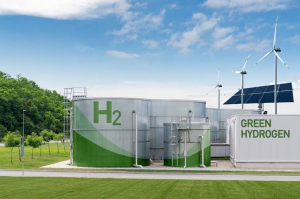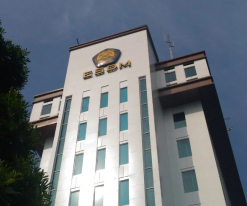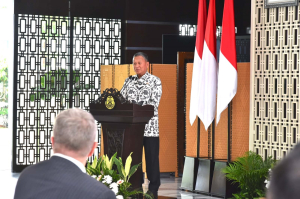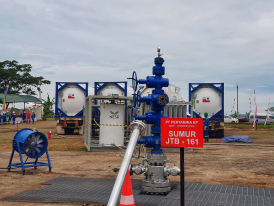Indonesia embraces green hydrogen for sustainable transportation future
Published on 03/04/2024 at 04:55 GMT+7 Reading time
Indonesia is on the cusp of a groundbreaking shift towards embracing green hydrogen as a pivotal component of its transportation sector, with forecasts pointing to significant adoption commencing in 2030.
The National Hydrogen Strategy outlines a roadmap where the deployment of low-carbon hydrogen will initially target long-haul vehicles such as trucks, heavy transports, and maritime vessels.
Chrisnawan Anditya, Head of the Data and Information Technology Center for Mineral Resources at the Ministry of Energy and Mineral Resources, stressed the importance of hydrogen-powered vehicles as a crucial diversification within the realm of electric vehicles, comparable to their battery-powered counterparts.
Looking towards 2040, Chrisnawan laid out plans for the progressive transition of public transportation, notably buses, to green hydrogen fuel.
Initial estimates indicate a demand of 6 GWh, equivalent to approximately 0.21 million tons of H2, with an envisioned uptick to 20 percent of buses utilizing hydrogen by 2060, amounting to a substantial 1.8 million tons.
Furthermore, the strategic vision extends to heavy transport vehicles, with projected hydrogen demand reaching 161 GWh by 2040 and soaring to 930 GWh by 2060.
Significantly, Indonesia's state-owned railway company, PT KAI, is also delving into hydrogen integration by exploring the incorporation of hydrogen fuel or batteries in its locomotives as part of its rail electrification endeavors.
While hydrogen currently finds predominant use in industrial sectors like fertilizer production, with an annual consumption of approximately 1.75 million tons, Chrisnawan underscored Indonesia's immense potential in renewable energy generation.
With proven natural gas reserves totaling 41.62 TCF, Indonesia is well-equipped for blue hydrogen production, while its renewable energy capacity of 3,686 GW holds promise for green hydrogen production.
On the global front, hydrogen-powered vehicles have gained momentum, with China emerging as a frontrunner in fuel cell electric vehicle (FCEV) adoption.
According to SNE Research, China dominated FCEV sales in 2023, capturing 38.8 percent of the global market share with 5.6 thousand units sold.
Despite a slight downturn in global FCEV sales in 2023, attributed to challenges such as hydrogen refueling costs and infrastructure limitations, projections point towards a resurgence in 2024.
Contributing factors include infrastructure expansions in China and the introduction of new FCEV models by major manufacturers like Toyota, Honda, and Hyundai.
As Indonesia lays the groundwork for hydrogen integration in its transportation sector, aligning with global trends and leveraging its abundant renewable energy potential, the nation stands poised to realize a sustainable and energy-secure future.
Tag
Already have an account? Sign In
-
Start reading
Freemium
-
Monthly Subscription
30% OFF$26.03
$37.19/MonthCancel anytime
This offer is open to all new subscribers!
Subscribe now -
Yearly Subscription
33% OFF$228.13
$340.5/YearCancel anytime
This offer is open to all new subscribers!
Subscribe now






